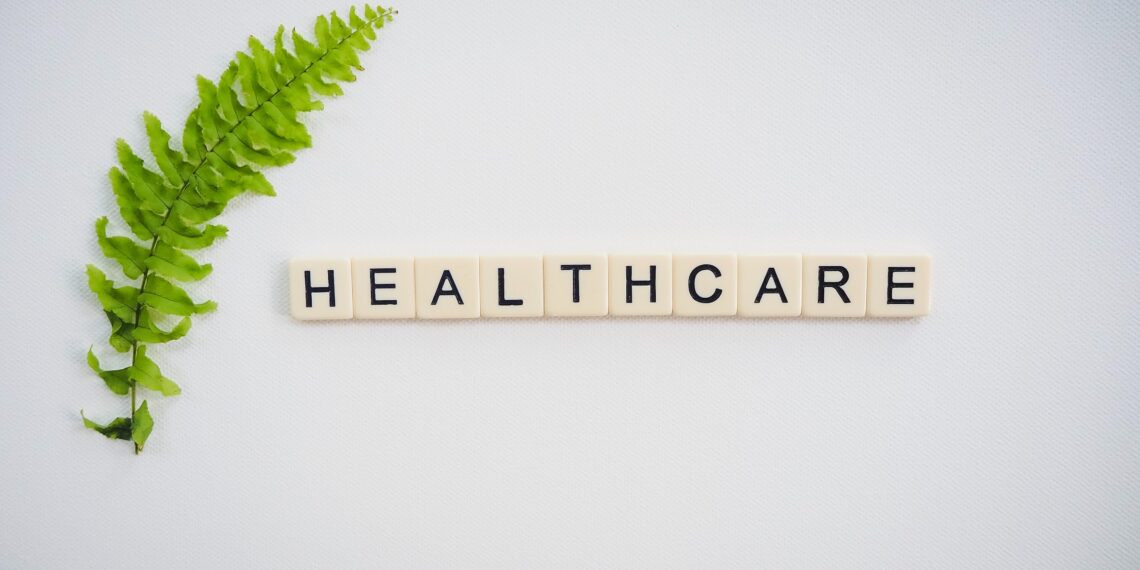Paying for healthcare can feel overwhelming, especially when you’re struggling to make ends meet. In the US, a single trip to the emergency room can cost upwards of $1,200. You don’t have to be stuck with these costs though: there are practical steps you can take right now to save money on your healthcare expenses.
Are you ready to discover how just a few simple changes can lead to significant savings?.
Key Takeaways
- Understand your insurance coverage and benefits to avoid unexpected costs.
- Shop around for the best insurance plan that fits your needs and budget.
- Consider high-deductible plans with HSA or FSA to save on taxes and cover out-of-pocket expenses.
- Ask your doctor about generic options and compare prices at different pharmacies to lower prescription costs.
- Utilize prescription discount programs or coupons to reduce the amount you spend on medications.
- Avoid unnecessary medical procedures or tests to save money on healthcare expenses.
- Negotiate medical bills or set up payment plans if you can’t afford them.
- Take advantage of free or low – cost resources like community clinics and patient assistance programs for affordable care.
- Schedule regular check – ups and screenings for early detection of health issues.
- Practice healthy habits, such as exercising regularly and eating a balanced diet, to prevent chronic diseases.
Evaluate and Optimize Your Insurance Plan
Understand your coverage and benefits, shop around for the best plan, and consider high-deductible plans with health savings accounts (HSA) or flexible spending accounts (FSA) as practical ways to save money on healthcare expenses.
Understand your coverage and benefits
Know what your health insurance covers and the benefits you get. This can help you avoid costs that are not covered. Every plan has things it pays for and things it does not. Read your policy to learn this information.
Call your insurance company if you have questions about your coverage or benefits. Do this before seeing a doctor or getting medical care.
Shop around for the best plan
To save money on healthcare, it’s important to shop around for the best insurance plan. Take the time to understand your coverage and benefits so you know what’s included and what’s not.
Compare different plans to find one that meets your needs and fits your budget. Consider high-deductible plans with health savings accounts (HSA) or flexible spending accounts (FSA) to potentially lower your premium costs.
By shopping around, you can find a plan that offers good value while still providing the necessary coverage for your healthcare needs.
Consider high-deductible plans with health savings accounts (HSA) or flexible spending accounts (FSA)
To save money on healthcare, you can consider high-deductible plans with health savings accounts (HSA) or flexible spending accounts (FSA). These plans allow you to set aside pre-tax money for medical expenses.
With an HSA, the funds roll over year after year, and you can use them for qualified medical costs. An FSA works similarly but has a “use it or lose it” policy where any unused funds are forfeited at the end of the year.
Both options can help you save on taxes and cover out-of-pocket expenses like deductibles, copayments, and prescriptions.
Strategies to Lower Prescription Costs
To lower prescription costs, ask your doctor for generic options and compare prices at different pharmacies. You can also find savings through prescription discount programs or coupons.
Ask for generic options
One way to save money on prescription medications is by asking for generic options. Generic drugs are typically cheaper than their brand-name counterparts, but they contain the same active ingredients and have been proven to be just as safe and effective.
By opting for generics, you can significantly lower your healthcare expenses without sacrificing quality. It’s important to discuss this option with your doctor or pharmacist and see if it’s suitable for your specific needs.
Remember, choosing generic medications is a simple yet effective strategy to help stretch your healthcare budget further.
11 Ways to Get Free or Low-Cost Mental Healthcare<—-
Compare prices at different pharmacies
Save money on your prescription medications by comparing prices at different pharmacies. Prices for the same medication can vary significantly from one pharmacy to another, so it’s important to shop around.
By taking the time to compare prices, you can find the pharmacy that offers the lowest cost for your prescriptions. This simple step can help you save a significant amount of money on healthcare expenses.
So next time you need to fill a prescription, don’t just go to the closest pharmacy – take a few minutes to check prices at multiple places and find the best deal.
Utilize prescription discount programs or coupons
Save money on your prescription medications by using prescription discount programs or coupons. These programs and coupons can help lower the cost of your medicines, making them more affordable for you.
Ask your pharmacist about any available discounts or check with organizations that offer prescription assistance to see if you qualify. By taking advantage of these savings opportunities, you can reduce the amount you spend on medications and keep more money in your pocket.
Practical Ways to Reduce Healthcare Expenses
Avoid unnecessary medical procedures or tests. Negotiate medical bills and payment plans. Take advantage of free or low-cost resources. Discover more practical ways to reduce healthcare expenses by reading the full article.
Avoid unnecessary medical procedures or tests
Unnecessary medical procedures or tests can cost a lot of money. It’s important to only get the healthcare services you really need. This means not getting tests or treatments that won’t help with your health.
By avoiding unnecessary procedures and tests, you can save a significant amount of money on healthcare expenses.
Negotiate medical bills and payment plans
If you have medical bills that you can’t afford to pay, it’s important to know that there are options available for negotiation. Many healthcare providers are willing to work with patients who are unable to cover the full cost of their medical expenses.
You can start by contacting the billing department or financial assistance office of the hospital or clinic where you received treatment and explaining your situation. They may be able to offer a discount on your bill or set up a payment plan that fits your budget.
It’s also worth noting that some states have laws in place that protect consumers from excessive medical debt. By understanding your rights and advocating for yourself, you may be able to reduce the financial burden of your medical bills.
Take advantage of free or low-cost resources
There are free or low-cost resources available that can help you save money on healthcare expenses. These resources can provide assistance with accessing affordable care, obtaining prescription medications at a lower cost, and finding discounted or no-cost preventive services.
By utilizing these resources, you can reduce your healthcare spending and still receive the care you need. Some examples of these resources include community clinics, which offer medical services to low-income individuals at a reduced fee or for free.
There are also patient assistance programs offered by pharmaceutical companies that provide discounts or free medications to eligible individuals who cannot afford their prescriptions.
How to Find Medical Bill Relief Programs<—-
Importance of Preventive Care

Make sure to schedule regular check-ups and screenings to catch any potential health issues early on. Practice healthy habits, such as exercising regularly and eating a balanced diet, to prevent chronic diseases from occurring.
And don’t forget to take advantage of the preventive services covered by your insurance plan to stay on top of your health.
Schedule regular check-ups and screenings
Regular check-ups and screenings are important for maintaining good health and preventing serious illnesses. By scheduling these appointments, you can catch any potential problems early on when they are easier to treat.
It’s especially crucial for low-income individuals to take advantage of preventive services covered by insurance as it can help save money in the long run by avoiding costly medical treatments.
These appointments also allow healthcare professionals to monitor your overall health and make recommendations for healthy habits that can prevent chronic diseases. Don’t forget to use your insurance benefits to cover the costs of these check-ups and screenings whenever possible.
Practice healthy habits to prevent chronic diseases
Take care of your health by practicing healthy habits to prevent chronic diseases. Eating a balanced diet that includes fruits, vegetables, whole grains, and lean proteins can help keep you healthy.
Make sure to exercise regularly and stay physically active. This can be as simple as taking a walk or doing some basic exercises at home. Avoid smoking and limit alcohol consumption to lower your risk of developing chronic diseases.
Getting enough sleep is also important for maintaining good health. By practicing these healthy habits, you can reduce the likelihood of chronic diseases and save money on healthcare expenses in the long run.
Take advantage of preventive services covered by insurance
To save money on healthcare, it’s important to take advantage of preventive services covered by insurance. This means scheduling regular check-ups and screenings with your doctor. By catching any potential health issues early on, you can prevent them from becoming more serious and expensive down the line.
It’s also important to practice healthy habits like eating well, exercising regularly, and avoiding smoking or excessive drinking. These lifestyle choices can help prevent chronic diseases such as diabetes or heart disease, saving you money in the long run.
So make sure to use your insurance benefits for preventive care and prioritize your health!
Conclusion
In conclusion, by evaluating your insurance plan, finding ways to reduce prescription costs, and avoiding unnecessary healthcare expenses, you can save money on healthcare. It’s also important to prioritize preventive care and take advantage of free or low-cost resources.
By being proactive and informed about your health plan benefits, you can make smart choices that help you save money on healthcare expenses.
FAQs
1. What are some practical money-saving tips for healthcare?
Some practical money-saving tips for healthcare include comparing prices for medications, utilizing preventive care services, and exploring generic or alternative treatment options.
2. Can I save money on healthcare without sacrificing quality?
Yes, you can save money on healthcare without sacrificing quality by being proactive with preventive care, researching affordable insurance options, and asking your doctor about cost-effective treatment alternatives.
3. How can I find affordable prescription medications?
You can find affordable prescription medications by comparing prices at different pharmacies, considering generic substitutes, and discussing lower-cost options with your doctor or pharmacist.
4. Are there any free resources available to help me save on healthcare costs?
Yes, there are free resources available to help you save on healthcare costs such as government assistance programs like Medicaid or Medicare and community health clinics that offer low-cost or no-cost medical services.
Source URLs
https://www.singlecare.com/blog/how-to-save-on-healthcare-costs/
https://www.rhsb.com/stretch-healthcare-dollars/
https://www.ramseysolutions.com/insurance/how-to-save-money-on-health-insurance
https://medlineplus.gov/ency/patientinstructions/000870.htm
https://www.lutz.us/blog/15-ways-save-money-medical-practice
https://www.bluecrossmn.com/members/shop-plans/individual-family-health-plans/7-ways-save-healthcare









